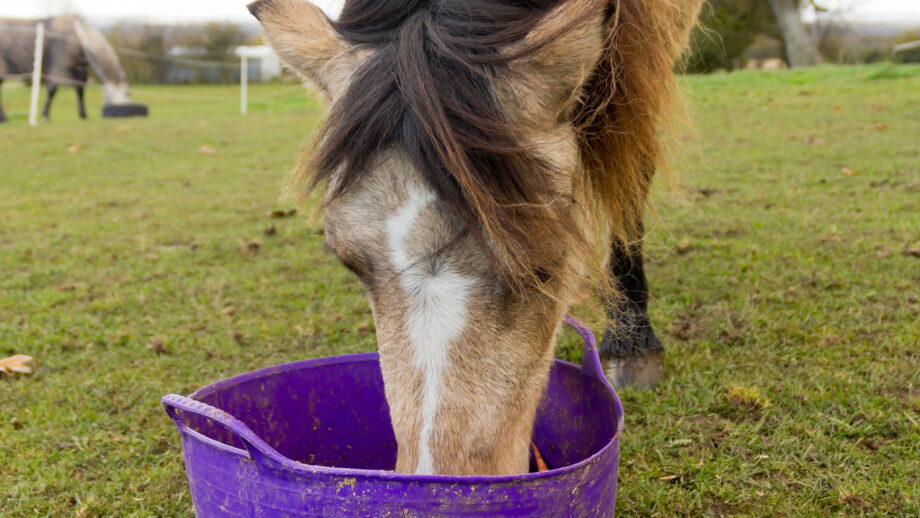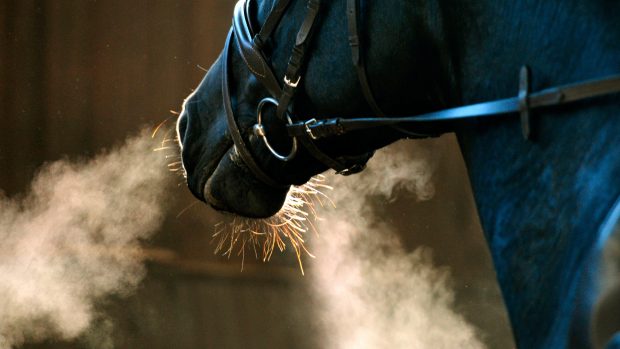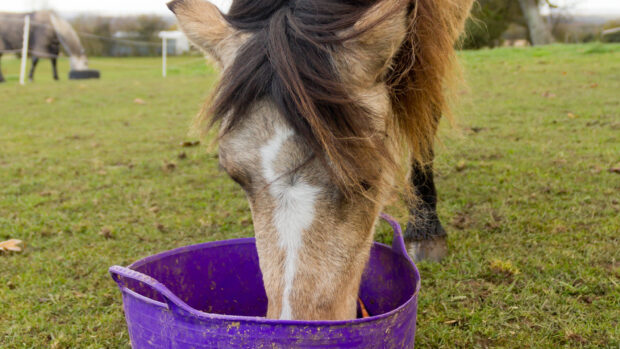The use of probiotics for horses can be beneficial when a horse is convalescing after illness, or his digestive system is being exposed to the stress of competition or changes to routine. However, only a small number of studies support the use of probiotics in horses and therefore consulting both a vet and nutritionist is a wise course of action before adding to the feed indiscriminately.
Stress alters the level of acidity in both the upper gut (small intestine) and hind gut (caecum and colon) allowing opportunistic “bad” or non-beneficial bacteria to multiply and overwhelm the “good” bacteria.
If left unchecked in the horse’s small intestine, bad bacteria, such as Salmonella and E. Coli, can cause health problems.
Probiotics consist of various naturally occurring lactic acid-producing bacteria that encourage the growth of beneficial bacteria already present in the horse’s small intestine. Essentially they deliver live bacteria to your horse’s digestive tract, ideally colonising the digestive tract and helping improve your horse’s overall health and digestion. Probiotics may help maintain proper pH levels, absorption of nutrients, feed efficiency and immune health. Adding them to the feed can be helpful in horses that have difficulty maintaining weight, are susceptible to hindgut issues, or are prone to loose stools.
H&H vet Karen Coumbe points out: “Many years ago we use to feed live yoghurt and historically horses were stomach tubed with gut contents from another horse, but now there are products that can be easily administered as pastes [or powders]. The key thing is for horses to have healthy bacteria and other micro-organisms in their hindgut to help fermentation and digestion.”
How probiotics work on horses
Probiotics work in three ways:
- Rebalance acid levels in the small intestine
- Use the food needed by bad bacteria
- Prevent bad bacteria from colonising the horse’s gut wall.
They also:
- Protect against the effects of stress
- Boost the immune system
- Reduce side-effects of antibiotics
- Protect against gastric problems
- Promote efficient digestion
- Increase milk in lactating mares.
Choosing a probiotic for horses
There is a big difference between probiotics and feed balancers.
A probiotic is a mixture of live bacteria designed for the upper gut to improve its efficiency and is fed in grammes per day. They often feature in gut balancers and digestive supplements for horses.
A feed balancer is a complete feed that contains vitamins, minerals, cereals and protein sources to balance any forage deficiencies. The recommended feeding level is usually 1kg per day. Often they contain yeasts, as do other feeds that are recommended to be fed at higher levels.
The equine industry often describes lactic acid-producing bacteria supplements that help the upper gut as probiotics. Yeast cultures (which are also technically probiotics) help the function of the horse’s hind gut. Both need to be fed for relatively short periods. Choose a product that targets the part of the gut you want it to.
Karen Coumbe says that choosing a probiotic should be done judiciously, as it is not always easy to tell if a product works.
“Unless they are prescription medicines, controls are less strict and it is hard to be sure what the contents include or how efficacious they are,” she says. “I would suggest owners need to look at overall horse health to include good diet, as normal an environment/diet as possible, for example: turn-out, grazing and limited rich concentrate feeds, minimise use of antibiotics that may affect gut health.
“I would also ensure sensible parasitic worm control with regular faecal worm egg counts and pasture hygiene (poo picking) rather than routinely using dewormer medications that can lead worms to build up resistance to such medication and potentially have other harmful effects.”
What are prebiotics?
Some formulas contain both probiotics and prebiotics. The difference between the two is that prebiotics do not introduce new bacteria to the horse’s digestive tract. However, prebiotics do promote the health and growth of micro-organisms already living there. They essentially act as a food source for your horse’s existing gut microbes.
Probiotics contain live bacteria, essential for a healthy gut, while prebiotics basically provide food for these “good bacteria”.
You may also be interested to read…

16 gut balancers on the market – and how to choose the best for your horse

How to choose the right feed balancer for your horse

How are feed balancers different to vitamin and mineral supplements?

Subscribe to Horse & Hound magazine today – and enjoy unlimited website access all year round
Horse & Hound magazine, out every Thursday, is packed with all the latest news and reports, as well as interviews, specials, nostalgia, vet and training advice. Find how you can enjoy the magazine delivered to your door every week, plus options to upgrade your subscription to access our online service that brings you breaking news and reports as well as other benefits.




